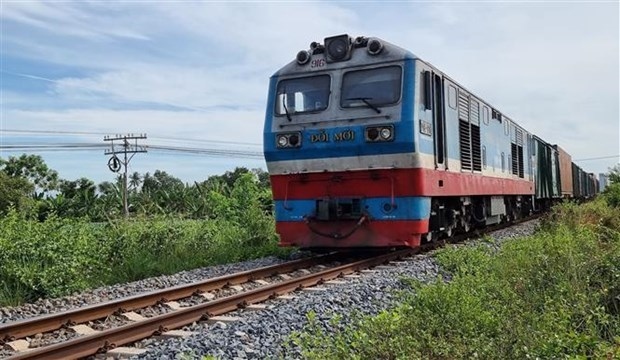Customs authority urges use of rail transport for farm produce export
The General Department of Vietnam Customs has asked relevant parties to boost the exportation of agricultural products by rail, especially across the northern border, in response to overloaded land transport and soaring costs.
The Ministry of Finance said the international imposition of strict anti-COVID-19 measures since the beginning of 2020 has affected global supply chains, leading to sea and land transportation congestion and rising expenses.
In particular, China’s “zero-COVID” policy with stringent anti-pandemic measures has hampered the flows of goods, vehicles, and people across the northern border. Thousands of vehicles carrying export commodities encountered jams in border areas of both countries, which has caused considerable losses to enterprises.
Facing that fact, the Government, ministries, and sectors have been taking various measures to facilitate trade and customs clearance, particularly for farm produce, but difficulties have yet to be thoroughly addressed.
Meanwhile, railway transportation is relatively smooth, cost effective, and the pandemic has not impacted rail as much. Therefore, many businesses are switching to this type of transport for trading activities, according to Vietnam Customs.
Given enterprises’ demand and proposal, the general department has called for increasing exportation of farm produce by rail, which it said is also a policy and direction of the Government.
Earlier, the Government had instructed the Ministry of Transport to coordinate with other ministries, agencies, and localities to make plans to improve the capacity of international rail freight transport to serve export and import.
Deputy Prime Minister Le Van Thanh ordered ministries, agencies, and localities to work to optimise other means of transport such as sea and rail transport to deal with congestion at northern border gates.
Implementing those directions, the Finance Ministry requested increasing investment in railway infrastructure to meet freight transportation demand.

